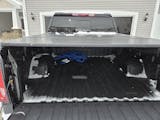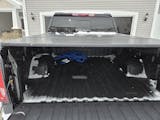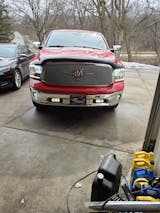A bad fuel pump symptoms
Fuel pumps are essential to the proper operation of your engine by delivering fuel to your engine. As such, they are an important part of your vehicle without which your fuel injection system cannot function properly. When they fail, they can cause some problems. Learn about the symptoms of a faulty fuel pump and how to avoid a breakdown.
Symptoms of a bad fuel pump
There are several signs that can alert you to the faulty condition of your car's fuel pump.
Difficulty starting
One of the most common symptoms of a faulty fuel pump is difficulty starting your car's engine. When it's not working properly, it may have trouble drawing fuel from the tank, making it difficult to start the engine. This malfunction often results in delayed engine ignition or even complete failure to start. An engine that runs but refuses to start immediately may indicate insufficient fuel pressure due to a faulty pump. Difficulty starting can be particularly noticeable in cold weather, as fuel may have difficulty circulating efficiently through the system.
Loss of Engine Power
A telltale sign of a faulty fuel pump is a noticeable loss of power in your vehicle's engine. If the fuel pump isn't delivering enough fuel to the engine, your vehicle's overall performance may suffer. For example, you may notice a significant loss of power when accelerating or a slower response to the accelerator pedal. RPMs may become sluggish and the car may have difficulty maintaining a constant speed. These symptoms indicate that the engine is not receiving the proper amount of fuel to run efficiently.

Misfiring
Misfiring can be a warning sign that the fuel pump may be malfunctioning. This type of failure manifests itself as momentary interruptions in the engine's ignition sequence, causing a jerky sensation while driving. When a fuel pump fails to deliver consistent pressure, the air-fuel mixture injected into the cylinders can become unstable, causing misfiring.
Untimely Power Losses
The other major, recurring symptom that can indicate a faulty fuel pump is an accumulation of untimely engine shutdowns. These cutoffs occur unexpectedly while driving and manifest themselves as a sudden engine stall. A faulty fuel pump may not be able to maintain the pressure needed to supply fuel to the engine at a constant level, resulting in these unexpected shutdowns. They can be particularly disconcerting when they occur at critical times, such as at high speeds on the highway. Aside from the inconvenience, premature shutdowns can also jeopardize passenger safety.
Pressure loss
If the diesel pump develops a leak or internal failure, fuel pressure can drop, causing engine performance problems.
Abnormal noises
A faulty diesel pump may produce unusual noises, such as rattling or grinding.
If you notice any of these symptoms in your vehicle, it's important to visit a professional repair shop as soon as possible for a thorough pump diagnosis. A specialist will be able to evaluate the fuel pump, circuit, and other related components to determine the cause of the cuts.
How can I tell if my diesel fuel pump is working?
To determine if a diesel fuel pump is working properly, you can take the following steps:
- Listen carefully: When you turn on the ignition, you should hear a buzzing sound coming from the fuel pump. If you don't hear a sound, there may be a problem with the pump;
- Check the fuel pressure: Use a pressure gauge to measure the fuel pressure at the pump outlet. Make sure it meets the manufacturer's specifications;
- Check for leaks: visually inspect the pump for fuel leaks. Leaks can indicate faulty seals or damaged components;
- Test fuel flow: Disconnect the fuel line from the pump and place it in a suitable container. Turn on the ignition and observe the fuel flow. If it is low or non-existent, this may indicate a problem with the pump.

Preventing Problems
You can maintain the optimum health of your fuel injector system and avoid fuel pump problems by following a few simple gestures and practices.
- First, make sure you follow the recommended frequency for replacing your fuel filter. This component plays a key role in preventing contaminants from entering the fuel pump and engine, helping to keep them running smoothly.
- Avoid running your vehicle's fuel tank at very low levels regularly. This habit can expose the fuel pump to air, increasing the risk of overheating.
- In addition, avoiding low-grade fuel can reduce deposits and keep the injection system running smoothly.
- Remember to schedule regular visits to a professional shop for preventive maintenance. Garage professionals can perform a complete fuel system diagnosis and identify early symptoms of pump malfunction. They can also recommend corrective action before major pump problems occur.
Featured Products
- $479.99
$499.99- $479.99
- Unit price
- / per
- $549.99
$559.99- $549.99
- Unit price
- / per
- $489.99
- $489.99
- Unit price
- / per
- $469.99
$489.67- $469.99
- Unit price
- / per




















